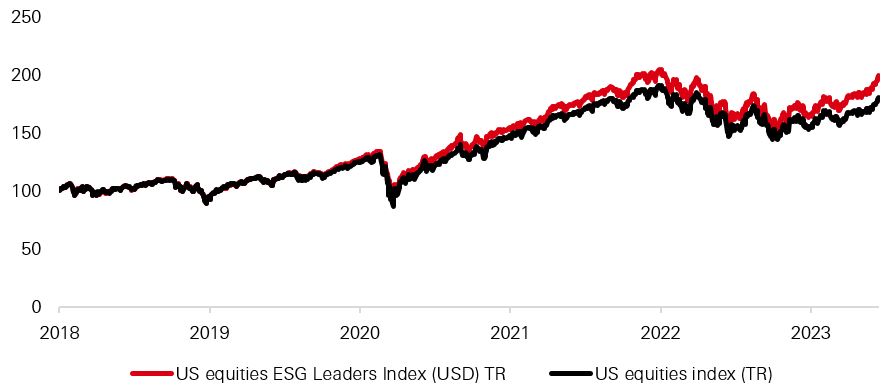Typically, ESG scores include multiple pillars and themes that are deemed as key issues relating to the environmental, social and governance categories. For example, MSCI ESG ratings integrate themes like climate change, natural capital, and pollution and waste into the environmental pillar, and human capital and product liability in the social pillar. As environmental and social risks are industry-specific, the methodology of ESG scores goes a step further by focusing on material issues for relevant sectors. Data governance and privacy, for instance, are more relevant to the IT and internet sectors, while labour relations are more relevant to labour-intensive sectors. Governance themes, such as corporate governance and behaviour, are universal issues applicable to all industries. Data points and theme scores are aggregated based on materiality weighting to produce a top score.
Integrating top-level ESG scores, such as the MSCI ESG rating, is a common approach to monitor ESG risks at a portfolio level. A portfolio weighted average ESG score provides a holistic summary of your portfolio’s ESG attributes and can be compared with benchmarks to better navigate potential risk exposures. We consider additional factors, such as ESG improvement within companies and regions, alongside overall ESG scores, to inform investment decisions and further enhance portfolios.






